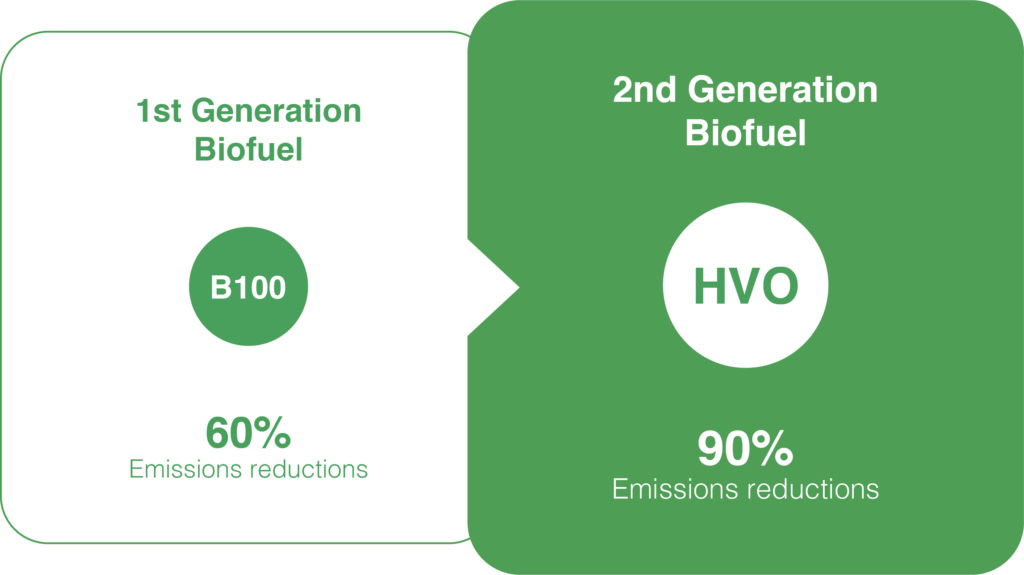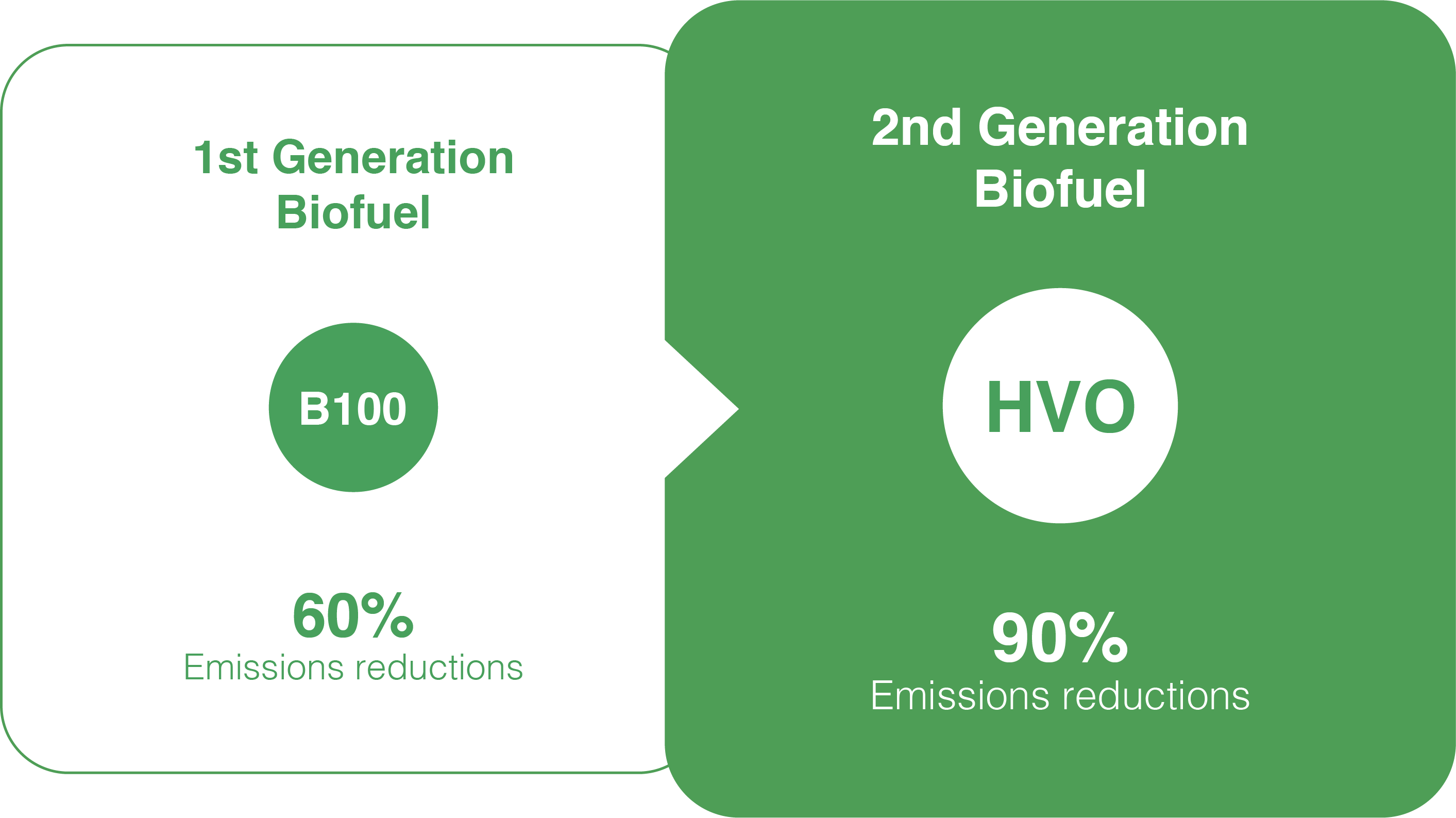Exploring Hydrotreated Vegetable Oil (HVO)
In our previous blog, we delved into the process of converting Used Cooking Oil (UCO) into biodiesel and discussed the challenges associated with traditional biodiesel production. Today, we’re continuing that conversation by exploring Hydrotreated Vegetable Oil (HVO), a second-generation biofuel that represents a significant advancement in sustainable energy.

What is Hydrotreated Vegetable Oil (HVO)?
HVO is a high-quality biofuel produced from vegetable oils, animal fats, or UCO through a process known as hydrotreatment. Unlike traditional biodiesel, which is produced through transesterification, HVO is created by hydrogenating the feedstock in a refinery process similar to that used to produce fossil diesel.
Key Differences Between HVO and Traditional Biodiesel (FAME)
- Production Process:
- FAME Biodiesel: Produced via transesterification, which reacts oils or fats with an alcohol in the presence of a catalyst.
- HVO: Produced through hydrotreatment, where hydrogen is added to the feedstock in a refinery, removing oxygen and creating a pure hydrocarbon that closely resembles fossil diesel.
- Fuel Quality:
- FAME Biodiesel: While effective, FAME can have issues with cold weather performance, oxidation stability, and engine compatibility at higher blends.
- HVO: Offers superior fuel properties, including better cold weather performance, longer storage stability, and the ability to be used in high concentrations or even as a direct substitute for fossil diesel without modifications to engines.
- Environmental Impact:
- FAME Biodiesel: Reduces greenhouse gas emissions significantly compared to fossil diesel, but may require more land or agricultural resources depending on the feedstock.
- HVO: Provides an even greater reduction in emissions due to its cleaner burning properties and can be made from waste materials like UCO, further minimizing environmental impact.
Global Adoption of HVO
HVO is gaining traction globally as a sustainable alternative to fossil diesel. Here’s a look at some of the countries leading the way:
- Finland: Home to one of the largest HVO producers, Neste, Finland has been at the forefront of HVO development and usage. The country has integrated HVO into its transportation sector, significantly reducing emissions.
- Sweden: Sweden is another leader in biofuels, with widespread adoption of HVO in public transport and heavy-duty vehicles.
- The Netherlands: Dutch companies are increasingly using HVO to meet sustainability goals, particularly in logistics and transportation sectors.
- United States: Several states in the U.S. are beginning to adopt HVO, especially in California, where stringent environmental regulations drive demand for cleaner fuels.
Indonesia’s Progress with HVO
Indonesia, as one of the world’s largest palm oil producers, is well-positioned to become a major player in HVO production. The country has already made significant strides in biodiesel with its B30 blending mandate, which requires diesel to contain 30% biodiesel derived primarily from palm oil.
However, the shift towards HVO is still in its early stages in Indonesia. The government and private sector are exploring the potential of HVO as part of the broader strategy to reduce carbon emissions and improve energy security. Investments in HVO production facilities and research are crucial next steps for Indonesia to harness the full potential of this advanced biofuel.
The Road Ahead: HVO’s Potential in Indonesia
The transition to HVO in Indonesia holds immense promise. As the country continues to invest in sustainable energy solutions, HVO could play a pivotal role in achieving national carbon reduction targets. The superior quality and environmental benefits of HVO make it an attractive option for the transportation sector, especially as Indonesia seeks to balance economic growth with environmental stewardship.
In our next post, we’ll delve into the potential economic impacts of HVO production in Indonesia, exploring how this advanced biofuel could create new opportunities for businesses, including those involved in UCO collection, and contribute to national energy independence.
Contact Tuang Bio Energi
Website: https://www.tuang.co.id
Phone: 021-30620136
Email: [email protected]
Join us on the journey towards a sustainable future. Stay tuned for more insights on how you can be a part of Indonesia’s biofuel revolution!


Leave a Reply